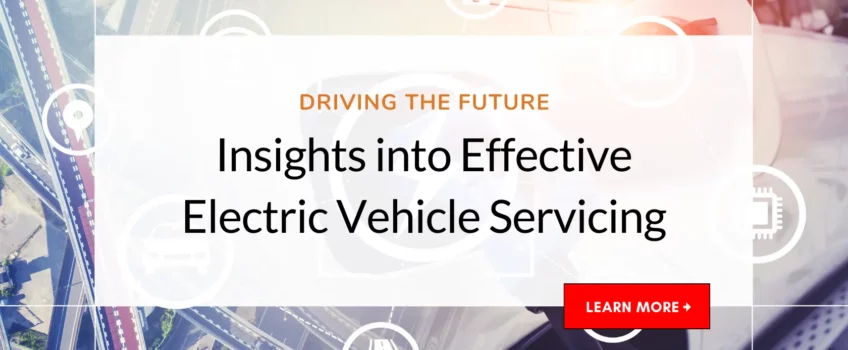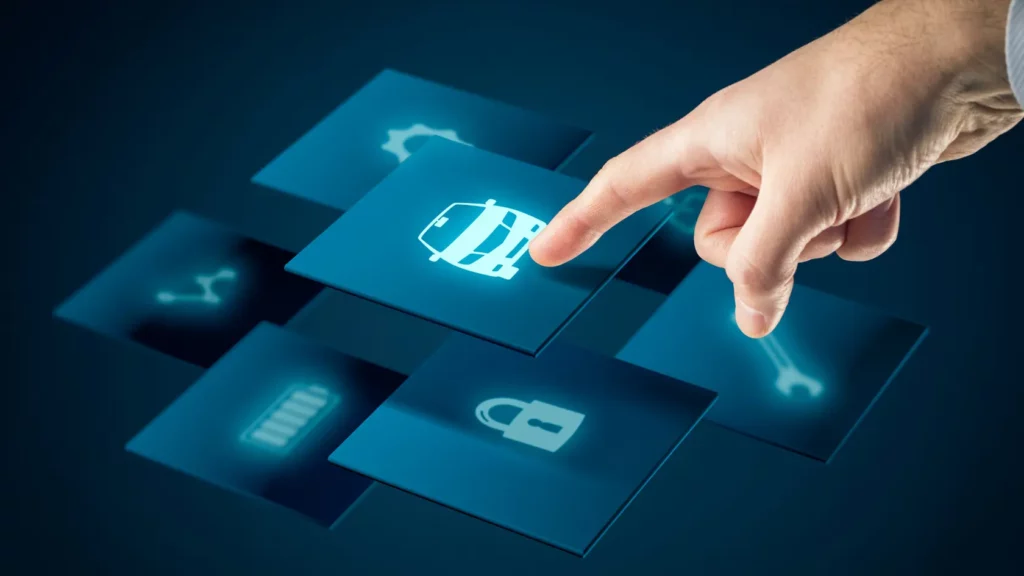
Electric Vehicle Service: Your Ultimate Guide
As we sail into the age of sustainable transport, electric vehicles (EVs) are becoming the norm, not the exception. But, owning an EV is not just about plugging it in and driving off into the green horizon. It also requires regular upkeep. At Elite Garages, all of our branches can perform your next electric vehicle service as we have state-of-the-art facilities and trained professionals to help keep your EV in top shape.
Why Do You Need Regular EV Maintenance?
Contrary to popular belief, an EV isn’t maintenance-free. Despite having fewer moving parts than a traditional combustion engine car, your EV still needs some TLC. Just as you’d service a petrol or diesel car, EV maintenance is essential to safeguard its longevity and performance.
Electric Vehicle Service and EV Maintenance Essentials
Battery Care: The Heart of Your Electric Vehicle
One of the primary concerns for many is the maintenance of an EV’s battery, which powers the engine. While EVs also have a 12-volt battery that occasionally requires replacement, it is far less significant. By diligently maintaining the EV battery over time, owners can stave off costly battery replacements—a typical concern among potential EV buyers.
Additionally, many manufacturers offer extended warranties for their EV batteries, covering up to 100,000 miles. As such, those planning to trade their EVs before the warranty expires can potentially avoid these otherwise hefty expenses.
Battery health is a significant aspect of electric vehicle maintenance. Most modern EVs use lithium-ion batteries, known for their durability and efficiency. However, it’s essential to avoid consistently charging the battery to 100% or depleting it entirely, as it can reduce the battery’s lifespan.
Thermal Management: Keeping Your EV Cool
In addition to ensuring battery longevity, a well-maintained thermal management system significantly contributes to overall performance efficiency. This system optimises energy use, particularly during extreme weather conditions.
Prolonged exposure to extremely high or low temperatures can harm the battery so it’s important to regularly check the thermal management system during an electric vehicle service to ensure its functioning as it should.
Regenerative Braking: The Double-Edged Sword
Regenerative braking, a common feature in electric vehicles, serves a dual purpose—it not only slows down the vehicle but also converts the energy typically lost during braking back into power for the battery. This ingenious system adds to the EV’s efficiency and range, and also reduces wear on the brake pads, translating into less frequent brake maintenance.
However, the double-edged nature of regenerative braking lies in its potential to give drivers a false sense of security regarding the brake system’s health. Since the system minimises wear on the brake pads, drivers may overlook the necessity of regular brake inspections as part of their electric vehicle service routine.
Despite the reduced wear and tear, other essential components of the braking system such as brake fluid and rotors still require regular checks. Failure to conduct these can result in impaired braking performance and potential safety issues.
Electric Vehicle Service and EV Tyre Care
EVs do not require oil changes, spark plug replacements, or exhaust system repairs, largely reducing the frequency and costs of servicing. However, the focus shifts towards specialised areas like the battery, electric motor, thermal management system, software updates and tyres.
A crucial, often overlooked aspect of electric vehicle servicing is the maintenance and choice of EV tyres. Due to their battery packs, electric cars are usually heavier than conventional vehicles, resulting in faster tyre wear. Therefore, regular rotation, wheel alignment checks, and pressure monitoring are essential to prolong tyre life.
The choice of EV tyres also matters as low rolling resistance tyres are specifically designed to reduce wasted energy, and are generally recommended for electric vehicles. These tyres not only improve the vehicle’s range but also enhance overall performance and safety.
Recommended: EV Tyres vs Normal Tyres: What Are The Key Differences?
EV Tyre Maintenance: A Critical Factor
Tyre maintenance is a critical aspect that affects not only the performance and safety of electric vehicles but also their efficiency and range. As mentioned in the previous section, the heavier weight of EVs from the battery packs often puts additional stress on the tyres, which may lead to faster wear compared to conventional vehicles.
As a result, regular tyre rotation, wheel alignment checks and timely replacement are vital to ensure tyre longevity. It’s also important to maintain the manufacturer-recommended tyre pressure. Remember,
- Under-inflated tyres increase rolling resistance, thereby demanding more energy from the battery and reducing the EV’s range.
- On the other hand, over-inflated tyres can adversely affect the vehicle’s handling and braking, posing potential safety risks.
Electric Vehicle Service Intervals
Electric vehicles typically require less frequent servicing compared to their petrol or diesel counterparts. Take Renault’s Zoe, for instance, which suggests service intervals of 18,000 miles, doubling the 9,000-mile recommendation for its petrol vehicles.
Electric models from Volkswagen, including the ID.3 and ID.4, operate on a fixed electric vehicle service schedule, like combustion engine cars. The initial inspection is due after two years, followed by annual servicing or every 18,000 miles, whichever comes first.
Hyundai outlines a similar plan for its electric vehicles, mirroring its petrol and hybrid cars’ service intervals. These intervals are set at 10,000 miles in the first year, extending to 20,000 miles in the second year, and so on, adhering to the “whichever comes first” principle. Similarly, the BMW i3’s service intervals are set for every two years or 18,000 miles.
What’s Included In An Electric Vehicle Service?
An electric vehicle service includes a range of checks and maintenance tasks, aimed at ensuring the efficiency, safety, and longevity of the vehicle. Here are the main elements that are typically included:
- Battery health inspection
- Tyre tread and pressure check
- Brake system review
- Cooling system examination for battery and electric motor
- Software updates and diagnostic checks
- Charging port and cable check
How to Extend Your Electric Vehicle’s Lifespan
Regular maintenance and proper usage can significantly extend your electric vehicle’s lifespan. From managing battery charging habits to scheduling regular inspections of key components like the braking system and thermal management system, these measures ensure that your EV remains efficient and reliable for years. Not to mention following your electric vehicle service schedule!
The Role of Software in Electric Vehicle Maintenance

Software plays a crucial role in electric vehicle maintenance. Regular software updates can improve your vehicle’s performance, range, and safety which is something technicians will do as part of your electric vehicle servicing. Additionally, some manufacturers provide diagnostic tools within the vehicle’s software to notify you about potential issues and maintenance needs.
Electric Vehicle Service and MOTs: What You Need to Know
Did you know that EVs also need an MOT? As of their third birthday, all cars in the UK, including EVs and hybrids, need an annual MOT test. This important safety and roadworthiness check includes inspection of components like lights, mirrors, brakes and tyres. Our team at Elite Garages is fully qualified to perform MOTs on all EVs and hybrids.
Common Problems EV Owners Experience
Though EVs are remarkably efficient, they aren’t immune to issues. Some common problems EV owners face include:
- Battery degradation
- Tyre wear (due to the car’s weight)
- Brake system failures (typically due to underuse because of regenerative braking)
- Software glitches
Each of these issues is addressable through regular EV maintenance, and Elite Garages is equipped to tackle them all.
The Evolution of Electric Vehicles: A Glimpse into the Future
The electric vehicle (EV) market is witnessing an unprecedented transformation, driven by significant technological advancements and a global shift towards sustainability. This change is setting new standards for what consumers can expect from their vehicles, both in terms of performance and environmental impact.
Key Developments in EV Technology
- Advancements in Battery Technology, such as Solid-State Batteries:
These offer higher energy density, faster charging times, and improved safety over traditional lithium-ion batteries. Solid-state batteries are expected to extend EV range to over 500 miles on a single charge and drastically reduce charging times to minutes, making electric vehicles more appealing to a broader audience.
- Expansion of Charging Infrastructure:
The expansion of EV charging stations across urban areas and along key highways has transformed long-distance travel in electric vehicles into a practical reality. Meanwhile, the advent of ultra-fast charging stations is revolutionising the experience by drastically cutting down the time needed to recharge EV batteries, thereby elevating the convenience of owning an electric vehicle.
Looking For An Electric Vehicle Service Centre Near You?
At Elite Garages, we recognise the future of transportation and have equipped our garages nationwide to be your go-to electric vehicle service centre. From routine servicing and MOTs to diagnosing common problems, our expert team is ready to keep your EV running smoothly.
Our expert technicians are IMI Level 3 trained for electric vehicle system repair and maintenance. If you are searching for an EV service centre near me, Elite Garages have branches across the south and southeast of England. Visit the website for more information or contact your nearest branch about your next electric vehicle service.
FAQS
Click the + to read any answer or visit our most FAQ page to review the most frequently asked questions across all our Elite Locations.
If you click on a ‘Category’ or ‘Tag’ link, the page will ‘refresh’ and reload the page showing the top of the page first, you’ll then just need to scroll down to the FAQ section to see the results for the Category or Tag you selected.
Electric vehicles typically require less frequent servicing compared to their petrol or diesel counterparts. The Renault Zoe, for instance, has a suggested service interval of 18,000 miles, doubling the 9,000-mile recommendation for its petrol vehicles.
At the same time, Hyundai outlines a similar plan for its electric vehicles, mirroring its petrol and hybrid cars’ service intervals. These intervals are set at 10,000 miles in the first year, extending to 20,000 miles in the second year, and so on, adhering to the “whichever comes first” principle. Similarly, the BMW i3’s service intervals are set for every two years or 18,000 miles, much like the Renault Zoe.
No, electric vehicles (EVs) do not require oil changes.
In a traditional internal combustion engine, the oil is used for lubricating the engine’s moving parts, cooling the engine by removing heat, and cleaning the engine from sludge and varnish. However, an EV operates differently and does not have an internal combustion engine with many moving parts.
Electric vehicles (EVs), while having fewer mechanical parts compared to conventional cars, still require regular maintenance to ensure their best performance. Here are the key aspects of maintenance needed on an EV:
- ol]:!pt-0 [&>ol]:!pb-0 [&>ul]:!pt-0 [&>ul]:!pb-0″ value=”1″>Battery health inspection
- ol]:!pt-0 [&>ol]:!pb-0 [&>ul]:!pt-0 [&>ul]:!pb-0″ value=”2″>Tyre tread and pressure check
- ol]:!pt-0 [&>ol]:!pb-0 [&>ul]:!pt-0 [&>ul]:!pb-0″ value=”3″>Brake system check
- ol]:!pt-0 [&>ol]:!pb-0 [&>ul]:!pt-0 [&>ul]:!pb-0″ value=”4″>Cooling system examination for battery and electric motor
- ol]:!pt-0 [&>ol]:!pb-0 [&>ul]:!pt-0 [&>ul]:!pb-0″ value=”5″>Software updates and diagnostic checks
- ol]:!pt-0 [&>ol]:!pb-0 [&>ul]:!pt-0 [&>ul]:!pb-0″ value=”6″>Charging port and cable check
- Regular MOTs
Generally, EVs can outlive their petrol or diesel counterparts with the right maintenance. While the lifespan of an EV can vary, on average, an EV battery can last between 10 to 20 years, depending on usage and maintenance. Consistent electric vehicle servicing at Elite Garages will help extend your EV’s life and optimise its performance.
About Us
Opening Times
Saturday : 8:30–4:00
Sunday : closed
More Information
Contact UsCustomer Information Pack
Check MOT Due Date
Free MOT reminder
Careers
Legal Information
Recent Posts
- Beyond Your Fareham MOT Centre: Tyres, Servicing, and Safety Checks
- Expensive Car Problems That Could Spell Trouble
- Car Servicing in 2025: Why It Matters More Than Ever
- How Regular Car Maintenance Helped A Corolla Reach One Million Miles
- Elite Garages Dorchester Arrives: Expert Car Services on Your Doorstep


